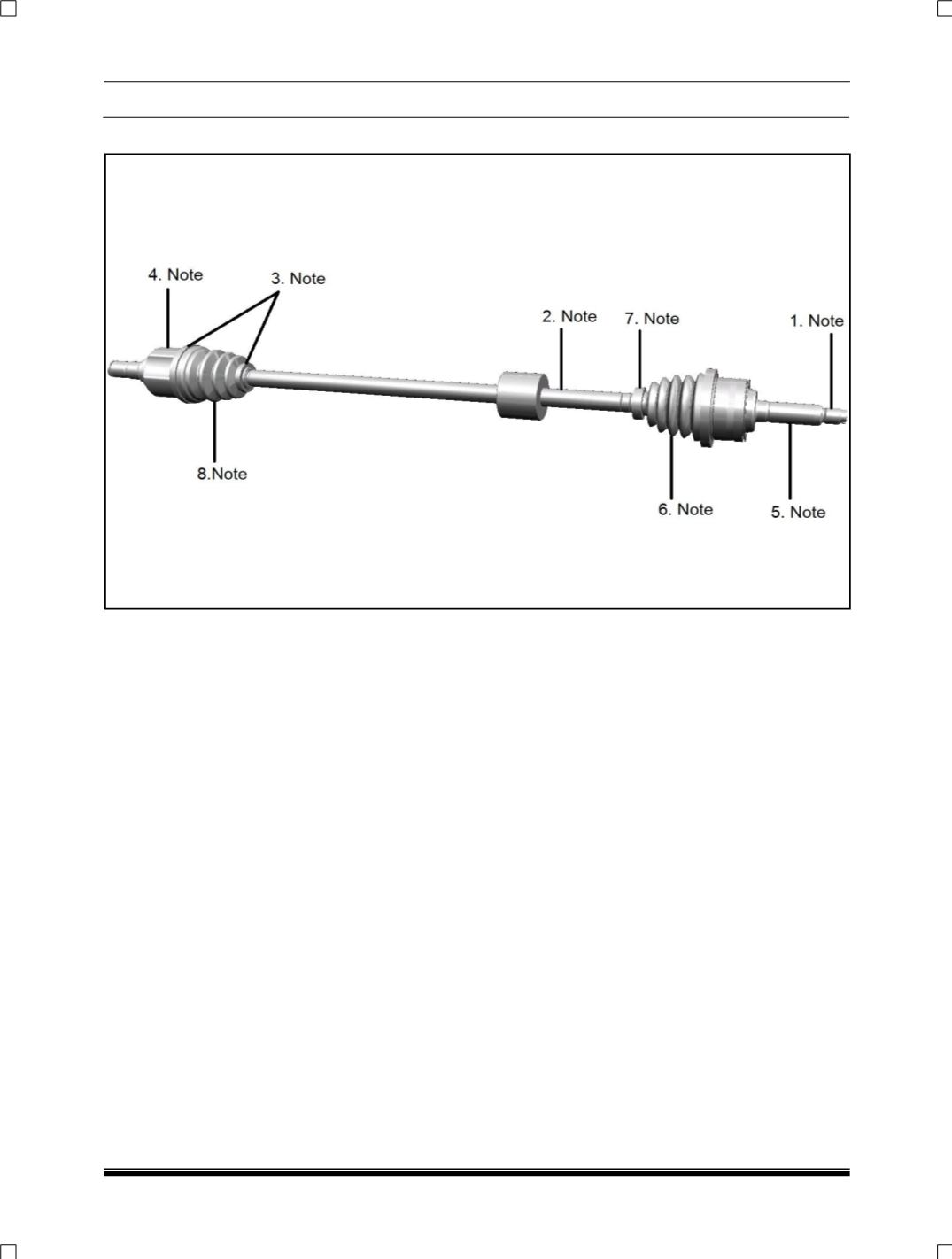

DRIVETRAIN-TA65 Star
19
4.5. B. DRIVESHAFT
Fig. 3
Half shafts must be stored in their original shipping
containers or supplier approved fixtures until
assembled into vehicle. It is important to take all
precautions to avoid stacking half shafts on top of
each other. The seals and deflecting rings are
extremely delicate and any cut, nick, or abrasion
may reduce the performance of the driveshaft.
1. Note:
If Out board joint must be angulated to fit
the half shaft assembly into the vehicle,
all precautions should be taken to avoid
damaging the surface of the threads and
splines during installation.
2. Note:
Take all precautions to avoid any contact
between the inboard and outboard seals
and any surface which may cause a cut,
nick or abrasion. The seals are extremely
delicate and critical to the performance to
the half shaft. Do not allow the seals to
contact other half shafts, workbenches,
the vehicle frame, lower control arm, or
any other chassis component. If grease
leakage is observed from either seal, the
half shaft should be removed from the
vehicle, handled with care, and returned
to authorize dealer for analysis.
3. Note:
Clamps should be in position and tight. If
clamps are loose, don’t install into
vehicle.
4. Note:
To prevent damage to the internal
components of the inboard joint, take all
precautions to avoid over extending the
joints.
5. Note:
Protect this surface from nicks and
scratches. Damage to this surface may
reduce the performance of the mating
seal.
6. Note:
Protect deflector ring from impacts, which
could cause dents. A dented/Damaged
deflector ring may result in an
interference condition and affect the seal.
7. Note:
Eared clamp must be in position and
crimped. Take precaution to avoid any
contact between the ear of the clamp and
any object, which may bend/crush, the
“ear”. A damaged “ear” will decrease the
clamping load, which may cause grease
leakage and / or intrusion of water/debris.
8. Note:
Take precaution to avoid any contact
between the inboard seal and the tooling
used to insert the assembly into the
transmission. Contact between the seal
and the tooling will cause a seal peak
abrasion which may reduce the life of the
seal and lead to dissatisfied customer.










